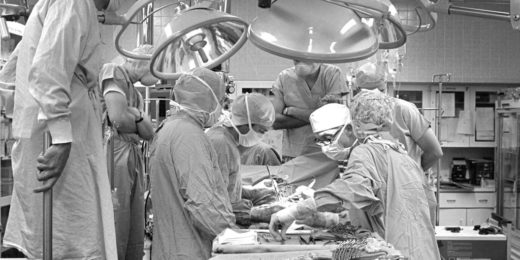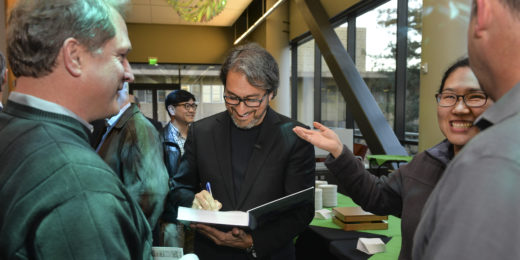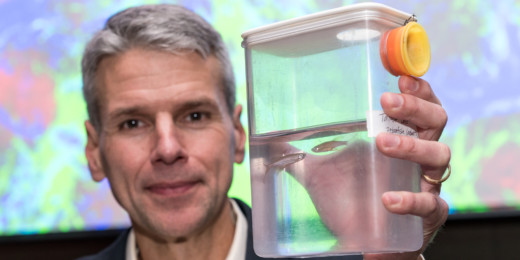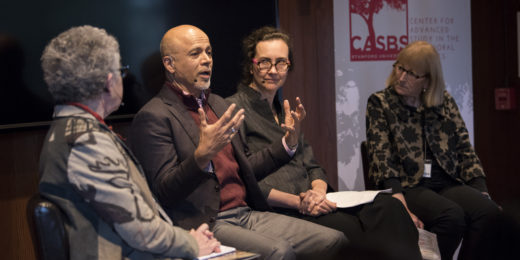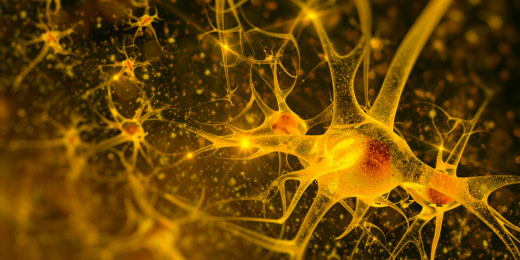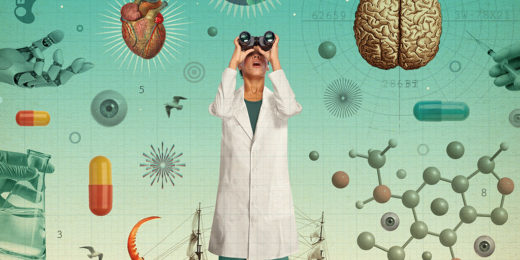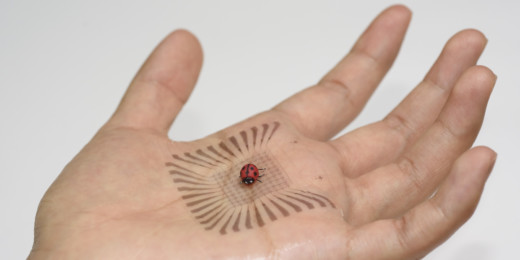In 1968, the first successful adult heart transplant took place at Stanford. Here's what has happened since then.
Category: Innovation & Technology
Helping the body: Entrepreneur-physician offers insights into biodesign
Serial health technology entrepreneur Josh Makower described his work developing devices that make medical procedures better for patients by seeking to "help the body do what it would want to do on its own."
CRISPR technology offers hope for sickle-cell patients
A Stanford Medicine article examines CRISPR, the gene-editing technology, and addresses its potential to help with conditions such as sickle-cell disease.
New technique can grow biofilm in custom patterns, fueling research on often-problematic bacterial communities
A technique for growing sticky films of bacteria into elaborate microscopic images could reveal how potentially dangerous biofilms grow and transmit antibiotic resistance, and could lead to novel biomaterials or synthetic microbial communities.
Inventing the future: How scientific discovery can have exponential impact
The Stanford Medicine Discovery Innovation Awards provide funding to support early-stage, creative research, fueling scientific discoveries.
A conflicted relationship: On technology and human interaction
A physician, a linguist and a sociologist explored how technology has affected human interactions in a panel discussion hosted by Stanford’s Center for Advanced Study in the Behavioral Sciences.
CRISPR helps scientists track down potential therapeutic targets for ALS
Scientists have used genome editing to pinpoint genes that reveal information about ALS and may even protect against the degeneration of neurons.
Pushing boundaries, Stanford researcher explores growing human organs in animals
Stanford researcher Hiromitsu Nakauchi explores his dream of growing custom-made, transplantable human organs in large animals, despite funding difficulties.
Stanford Medicine magazine explores medicine’s new frontiers
Stanford Medicine magazine's winter issue explores science that pushes boundaries and also considers ethical questions raised about research.
Stretchable circuit innovation brings engineer closer to synthetic skin
New material and mass production process from Stanford engineer could enable foldable touchscreens, electronic clothing and, one day, synthetic skin.
Stanford Biodesign develops device to protect newborn babies from infection
A team of former Stanford Biodesign students developed a device to protect and stabilize umbilical cord catheters in newborn babies.
Intense magnetic stimulation could reduce severe depression, new study shows
Several severely depressed patients were helped by a new, experimental form of transcranial magnetic stimulation developed by Stanford Medicine researchers.


